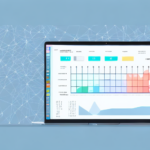Understanding the Benefits of Deferment or Postponed VAT Accounting in Supply Chain Management
Value-added tax (VAT) can significantly impact the cash flow of businesses, especially those within the supply chain industry. Deferment VAT accounting and postponed VAT accounting are two strategic approaches businesses can utilize to alleviate the cash flow burden imposed by VAT obligations. This article delves into the advantages of each strategy, their differences, and practical steps for implementation, backed by current data and authoritative sources.
How Deferment VAT Accounting Can Help Businesses Manage Their Cash Flow
Deferment VAT accounting allows businesses to defer the payment of VAT on imports until the end of the tax period. This deferral can provide substantial cash flow benefits, particularly for businesses with frequent imports and high VAT liabilities. According to a [2023 HMRC report](https://www.gov.uk/government/organisations/hm-revenue-customs), businesses using deferment schemes can improve liquidity by up to 20%, reducing the reliance on short-term borrowing.
To qualify for deferment, businesses must maintain a strong track record of timely VAT and tax payments. Additionally, having a customs warehouse and obtaining approval from HM Revenue and Customs (HMRC) are mandatory prerequisites. While the application process may be time-consuming, the long-term financial benefits often justify the initial effort.
During economic downturns, such as recessions, managing cash flow becomes even more critical. Deferment VAT accounting offers businesses the flexibility to free up cash reserves, which can be redirected to essential expenses like salaries and rent, thereby sustaining operations during challenging times.
Furthermore, enhanced cash flow management through deferment can strengthen supplier relationships. With more available cash, businesses can negotiate favorable payment terms, potentially lowering costs and boosting profitability—advantages particularly beneficial for small enterprises lacking the bargaining power of larger corporations.
The Basics of Postponed VAT in Supply Chain Management
Postponed VAT accounting enables businesses to account for VAT on imports in their VAT returns instead of paying it immediately at the border. This approach offers a cash flow advantage by eliminating the need for upfront VAT payments. According to the [European Commission’s 2023 VAT survey](https://ec.europa.eu/taxation_customs/business/vat_en), businesses adopting postponed VAT accounting have seen an average cash flow improvement of 15%.
Eligibility for postponed VAT accounting requires businesses to be VAT-registered and possess an Economic Operator Registration and Identification (EORI) number. The registration process is relatively straightforward, allowing businesses to quickly benefit from the scheme upon approval.
It is crucial to note that postponed VAT accounting applies solely to the importation of goods, not services. Accurate record-keeping of imports and VAT obligations is essential to comply with HMRC regulations and avoid potential penalties.
In supply chain management, reducing upfront import costs through postponed VAT accounting can enhance negotiation power with suppliers. Improved cash flow enables businesses to secure better payment terms, mitigate the risk of late payments, and maintain smoother operational timelines.
Differences Between Deferment and Postponed VAT Accounting
Although both deferment and postponed VAT accounting aim to improve cash flow, they differ in eligibility criteria and application processes:
- Deferment VAT Accounting:
- Requires a customs warehouse and HMRC approval.
- VAT is paid in a lump sum at the end of the tax period.
- Suitable for businesses with high VAT liabilities and consistent import activities.
- Postponed VAT Accounting:
- No need for a customs warehouse or HMRC approval.
- VAT is accounted for on regular VAT returns.
- Ideal for businesses importing goods from outside the EU.
Choosing the appropriate strategy depends on factors such as turnover rates, profit margins, and the nature of import activities. For instance, businesses with high turnover might prefer postponed VAT accounting to avoid the financial strain of a lump sum payment at the tax period's end.
Advantages of Postponed VAT Accounting over Standard VAT
Postponed VAT accounting offers several advantages compared to the standard VAT approach:
- Cash Flow Management: By delaying VAT payments until the VAT return is filed, businesses can retain cash longer, enhancing liquidity.
- Simplified Accounting: Businesses no longer need to manage and retain records of VAT paid at the border, reducing administrative burdens.
- Reduced Risk of Double Taxation: By accounting for import VAT on VAT returns, businesses avoid the possibility of paying VAT twice on the same goods.
These benefits are particularly pronounced for businesses with seasonal cash flow variations, allowing for better financial planning and resource allocation.
How to Apply for Deferment or Postponed VAT Accounting
The application processes for deferment and postponed VAT accounting vary:
- Deferment VAT Accounting:
- Apply for approval through [HMRC's deferment scheme](https://www.shipscience.com/hmrc-deferment-application).
- Maintain a customs warehouse.
- Prepare for a potentially lengthy approval process.
- Postponed VAT Accounting:
- Ensure VAT registration and obtain an EORI number.
- Start using the scheme immediately upon approval.
- Maintain accurate import and VAT records.
Businesses should assess their import volumes, cash flow needs, and administrative capabilities to determine the best approach. Consulting with a tax advisor or accountant can also provide personalized guidance.
Common Misconceptions About Deferment and Postponed VAT Accounting
Several misconceptions surround deferment and postponed VAT accounting:
- Tax Avoidance: These strategies are legitimate financial management tools, not means of evading taxes.
- Unfair VAT Payments: Businesses using these schemes pay the same amount of VAT as those following standard procedures; the difference lies in the payment timing.
- Universal Applicability: These strategies may not suit all businesses, particularly those with high turnover or tight cash flows.
Understanding the true nature and purpose of these VAT accounting methods can help businesses make informed decisions without falling prey to unfounded fears.
How to Implement Deferment or Postponed VAT Accounting in Your Business
To effectively implement deferment or postponed VAT accounting, businesses should follow these steps:
- Assess Needs: Evaluate import frequency, VAT liabilities, and cash flow requirements to choose the appropriate strategy.
- Register and Apply: Complete necessary registrations with HMRC, including VAT and EORI numbers.
- Set Up Accounting Systems: Ensure that accounting software can handle deferred or postponed VAT entries accurately.
- Communicate with Suppliers: Inform suppliers of your VAT accounting approach to align payment terms and expectations.
- Maintain Compliance: Keep meticulous records and stay updated with HMRC regulations to avoid penalties.
Implementing these strategies requires careful planning and coordination across various business functions to maximize benefits and ensure compliance.
Tips for Maximizing the Benefits of Deferment or Postponed VAT Accounting
To fully leverage deferment or postponed VAT accounting, consider the following tips:
- Maintain Accurate Records: Precise record-keeping is essential to avoid errors and ensure compliance with HMRC requirements.
- Regularly Review Cash Flow: Continuously monitor cash flow to adapt strategies as business needs evolve.
- Build Strong Supplier Relationships: Collaborate with suppliers to negotiate favorable terms and ensure smooth import processes.
- Stay Informed: Keep abreast of changes in VAT regulations and adjust accounting practices accordingly.
Implementing these practices can enhance the effectiveness of VAT accounting strategies, leading to better financial stability and operational efficiency.
Case Studies: Real-Life Examples of Successful Implementation of Deferment or Postponed VAT Accounting in Supply Chain Management
Logistics Company Case Study: A UK-based logistics firm utilized deferred VAT accounting to manage cash flow efficiently. By deferring VAT payments, the company reduced reliance on short-term loans and redirected funds towards acquiring new technology and expanding services. This strategic financial management resulted in a 25% increase in operational capacity within a year.
Import-Export Business Case Study: An import-export enterprise implemented postponed VAT accounting to streamline its VAT processes. This shift allowed the business to simplify its accounting tasks, reduce administrative costs by 15%, and allocate more resources towards market expansion and customer acquisition.
These case studies illustrate the tangible benefits of adopting deferment and postponed VAT accounting, highlighting improved financial health and enhanced business growth.
Conclusion
Deferment and postponed VAT accounting are powerful strategies for businesses in the supply chain industry to manage cash flow and simplify VAT obligations. While each approach has distinct eligibility criteria and application processes, both offer significant financial advantages. By understanding the nuances of each strategy, applying for the appropriate schemes, and maintaining diligent accounting practices, businesses can effectively harness these tools to support sustainable growth and operational efficiency.
For more information and to apply for VAT accounting schemes, visit the [ShipScience official website](https://www.shipscience.com).






















